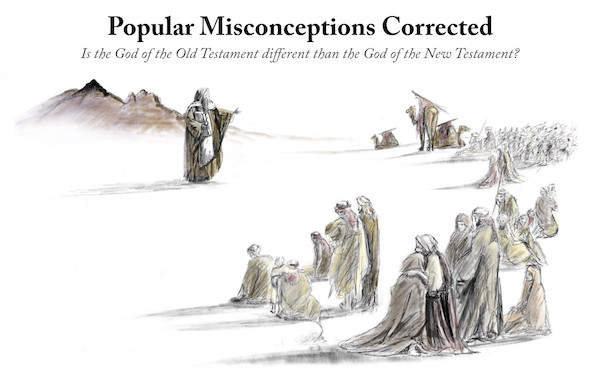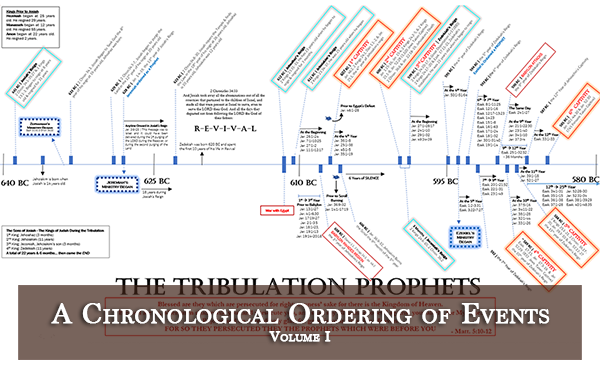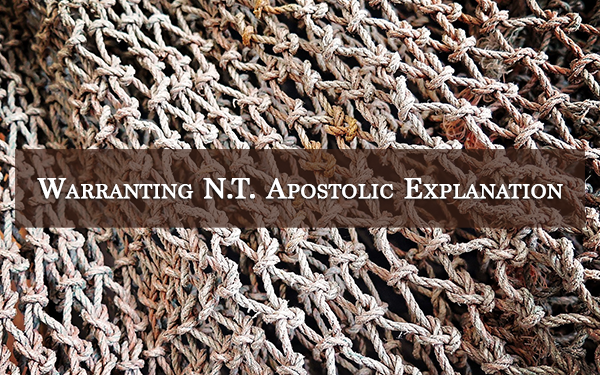Nevertheless, what became of Jeremiah when his faith failed? The time came when God pronounced prophetic woe upon Jeremiah in Jeremiah 15:14, a thing which is seemingly impossible. God said the Babylonians (God’s destroying wrath) were going to prevail against Jeremiah except he repents of his sins (see Jer. 15:15-21)! Indeed, God said: “…a fire is kindled in Mine anger which shall burn upon you” (Jer. 15:14)! Beholding certain destruction in the hands of an angry God, Jeremiah repented… being “heard in that he feared” (Heb. 5:7). Jeremiah had promises and so do we, but will we ever learn to “fear” (Heb. 4:1) based upon the examples which have gone before us (1 Cor. 10:11-12)? [For more information, see “Jeremiah”.]
Many quote John 6:37-40 to affirm “the Father’s will” that Christ “should lose nothing”, but what if the Father can repent of His will here, in the New Testament, like as He repented of His will in the Old Testament, being provoked thereto by backsliders (i.e. Jer. 18:7-11, Ezek. 33:12-20)? Consider the NT promise, my reader.
“All that the Father giveth me shall come to me; and him that cometh to me I will in no wise cast out. For I came down from heaven, not to do mine own will, but the will of him that sent me. And this is the Father's will which hath sent me, that of all which he hath given me I should lose nothing, but should raise it up again at the last day. And this is the will of him that sent me, that every one which seeth the Son, and believeth on him, may have everlasting life: and I will raise him up at the last day.” – John 6:37-40
What if our “forever” (2 John 1:2, Heb. 10:14) is as Saul’s “for ever” (1 Sam. 13:13), a “for ever” which Saul fell short of? Was it not the Father’s will that Saul’s Kingdom did continue before God “forever”, as the Lord said (1 Sam. 15:35), and this genuine intention that the Father had for Saul was “repented” of when Saul turned to sin in the 2nd year of his reign (see how it was said of God, “it repenteth Me”, in 1 Sam. 15:11, and “the LORD repented”, in 1 Sam. 15:35)? It is written that God repented, and therefore there was a genuine change of will, mind, and emotion in God, therefore we can understand that the Father can “will” something, and yet, not obtain His desire (in one sense, see “God in the ways of man”).
What if the New Covenant affirmation that, it is “the Father’s will” that none who are “given” to Christ “should” ever be “lost” (John 6:37-40), is the same scenario as when God, in the Old Covenant, willed that Saul should be King and that his Kingdom should continue forever? It can be correctly stated that Saul’s kingdom should have continued forever, even as Samuel the prophet stated the Father’s will concerning it: “for now would the LORD have established thy kingdom upon Israel for ever” (1 Sam. 13:13). What if we can fall short of our God-given promises which are “for ever” so that our latter end becomes like Sauls: “the Spirit of the LORD departed from Saul, and an evil spirit from the LORD troubled him” (1 Sam. 16:14)? Even so, also, what if the statement, “I should lose nothing” in John 6:37-40, can be the same as the statements, “I should”, in Ps. 81:14, “should have” in Ps. 81:15, and “should have” in Ps. 81:16, for it is said of them also, like those of John 6:37-40, “their time should have endured for ever” (Ps. 81:15)… but what happened (see Ps. 81:10-16)? In the light of these biblical events and more, how should we interpret the promise in John 6:37-40? [For more information, see “The Purpose and Intent For Salvation”.]
Is God with you right now?


 RSS Feed
RSS Feed























